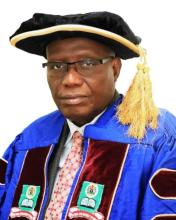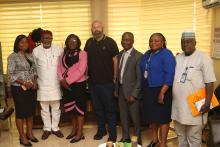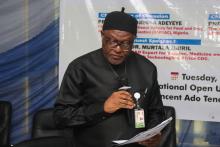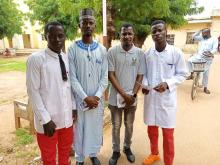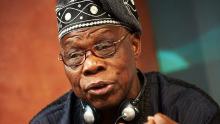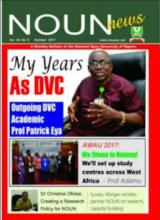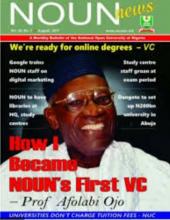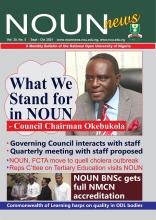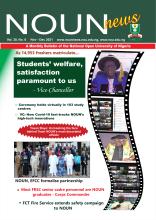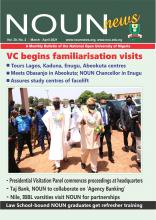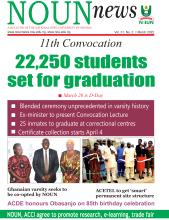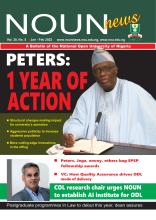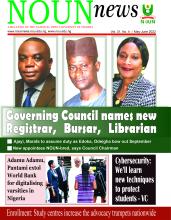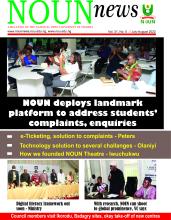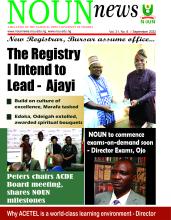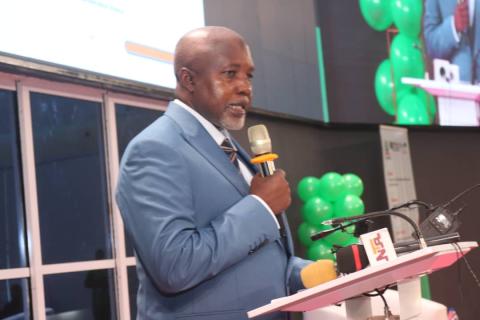
The Honorable Minister of State for Humanitarian Affairs and Poverty Reduction, Dr. Yusuf Tanko Sununu, has stated that efforts are underway to tackle the brain drain of Nigerians especially in the health sector.
Sununu said migration, whether internal, irregular, or external, presents both opportunities and challenges and the federal government has acknowledged the contributions of Nigerians in the diaspora, particularly in the medical field.
He made this known at the opening ceremony of the Annual Centre of Excellence in Migration and Global Studies (CEMGS) International Conference 2025, held at the National Open University of Nigeria (NOUN) headquarters in Abuja.
The 2-day conference, themed: “Migration and Sustainable Development: Problems and Prospects,” aimed to promote regular migration as the only sustainable choice while discouraging irregular migration.
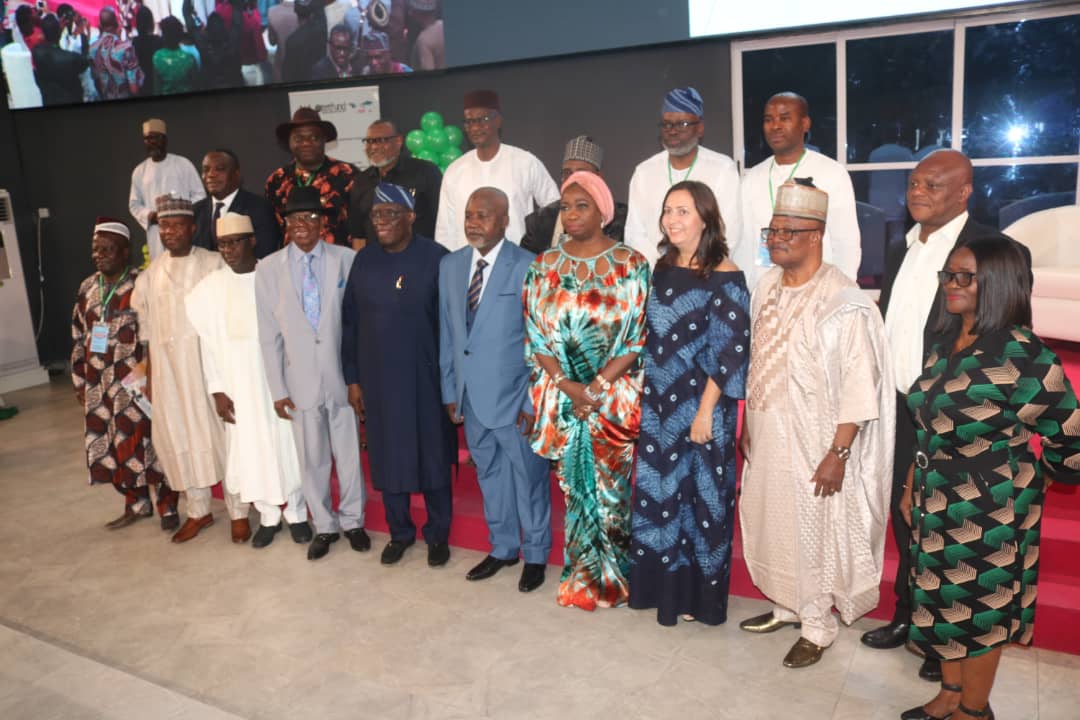
Group photograph at the end of the event
Group The minister, who declared it open, cited initiatives led by the Nigerians in Diaspora Organization (NIDO) to support healthcare delivery in the country.
Sununu emphasised on ongoing partnerships between Nigerian universities and foreign institutions to promote transnational education and reduce the outflow of skilled talent.
He commended NOUN’s Vice-Chancellor, Prof. Olufemi Peters, for expanding educational access, making it possible for migrants to continue learning even while in transit.
Earlier in his opening address, NOUN Vice-Chancellor, Prof. Olufemi Peters, highlighted the growing global migration crisis, particularly in Europe, where irregular migration has led to humanitarian tragedies involving loss of lives at sea and in deserts.
He noted that Nigeria is directly impacted by migration trends, citing the trillion-naira remittances sent home by Nigerian migrants in December, a phenomenon he referred to as ‘Detty December.’
Despite these financial inflows, he stressed the need for policies that address root causes of migration, such as economic instability and lack of opportunities.
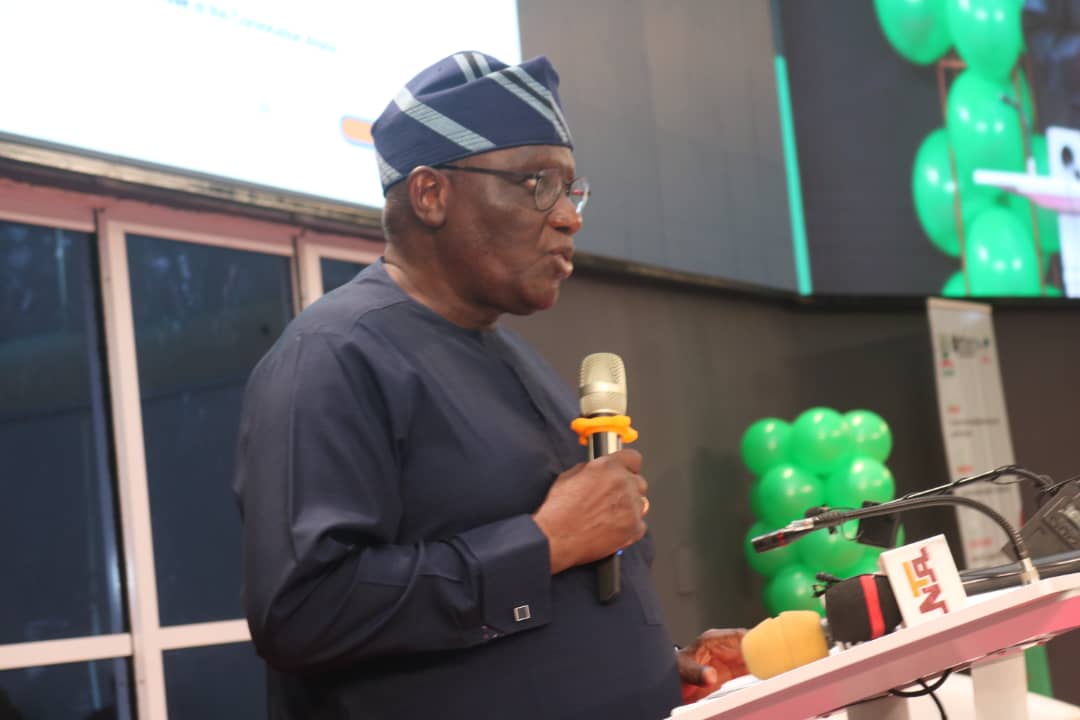
Prof.Olufemi Peters (VC NOUN) delivering his opening address
Peters also acknowledged the efforts of the Centre of Excellence in Migration and Global Studies at NOUN, established with support from the Tertiary Education Trust Fund (TETFund), stating that the centre has positioned itself as a leader in migration research, holding monthly seminars and international collaborations, including a current study with the Austrian Research Institute.
He urged TETFund to continue its support in expanding the Centre’s capacity for training and human capital development in migration studies.
A key note speaker at the conference, Rev. Fr. Dr. Emeka Obiezu, National Coordinator of the Civil Society Network on Migration and Development (CSOnetMADE), highlighted a critical gap in migration policy discussions, emphasising that Nigeria’s migration discourse is often skewed towards diaspora contributions while neglecting the role of internal migrants.
Citing global trends, he pointed out that while migration is often framed as a poverty escape route, studies indicate that migration rates are higher in economically thriving regions.
He also criticized international migration policies that prioritise labour market needs in destination countries while neglecting the structural inequalities that drive migration.
Calling for a coherent and inclusive migration policy, Obiezu advocated for revised trade agreements, emphasising that Africa’s current 1% share of global trade—75% of which comes from raw materials—limits economic growth and drives migration out of necessity rather than opportunity.

Prof. Gloria Anetor delivering her welcome address
In her welcome address, Prof. Gloria Anetor, Director of CEMGS, emphasised the centre’s commitment to interdisciplinary research and policy engagement on migration.
She expressed appreciation for the Vice-Chancellor and the Local Organising Committee, led by Professor Hakeem Akinwale, for their roles in making the event a success.
Anetor encouraged participants to engage deeply in the discussions, which aim to generate innovative recommendations for improving migration policies globally.
- Log in to post comments
- 284 views


